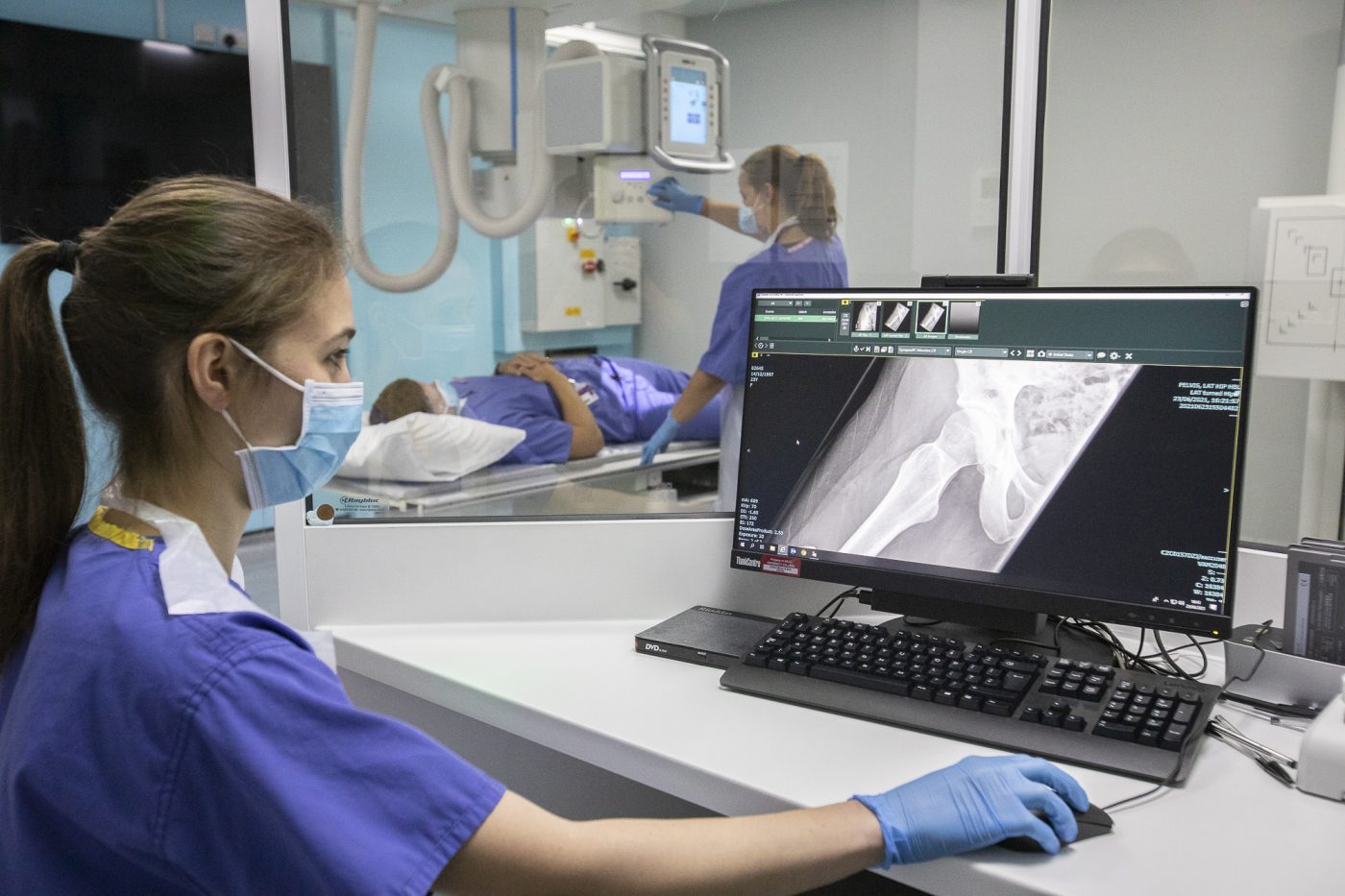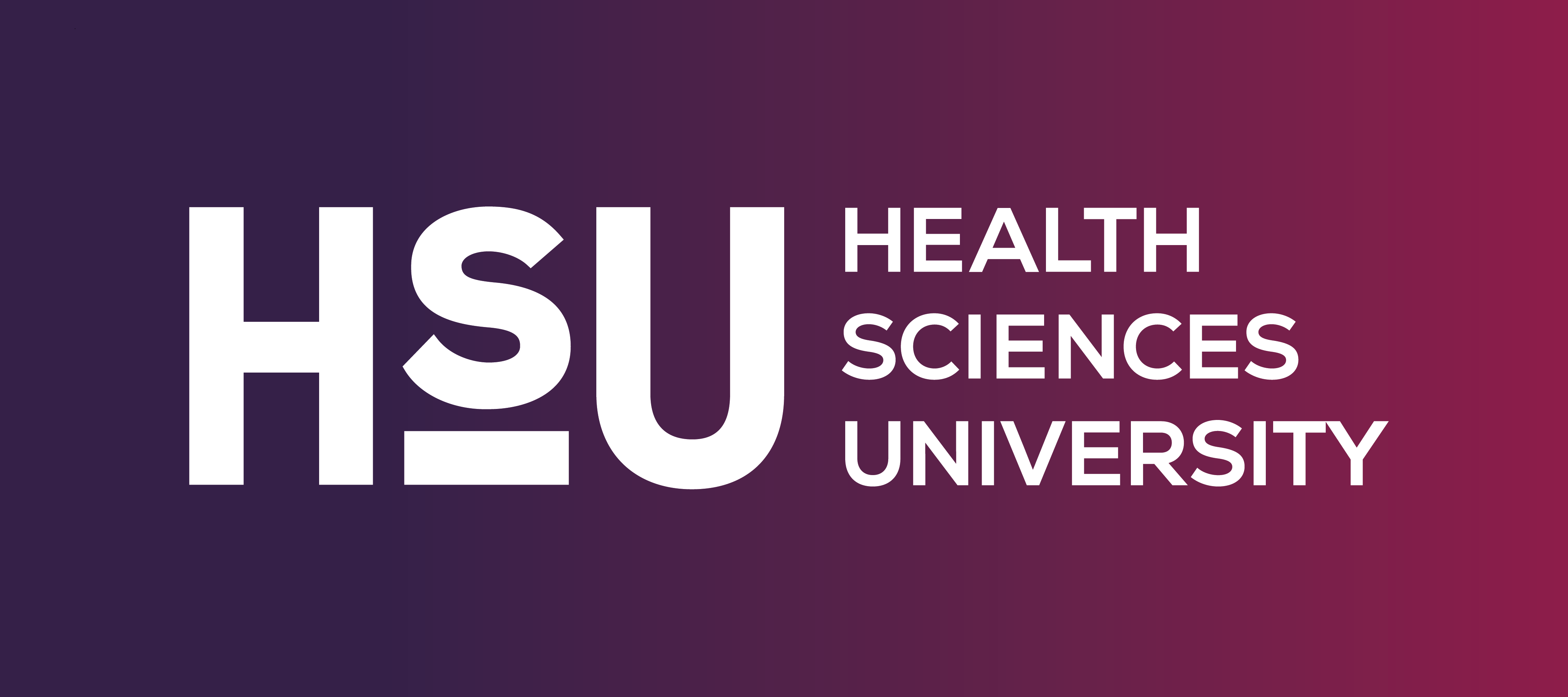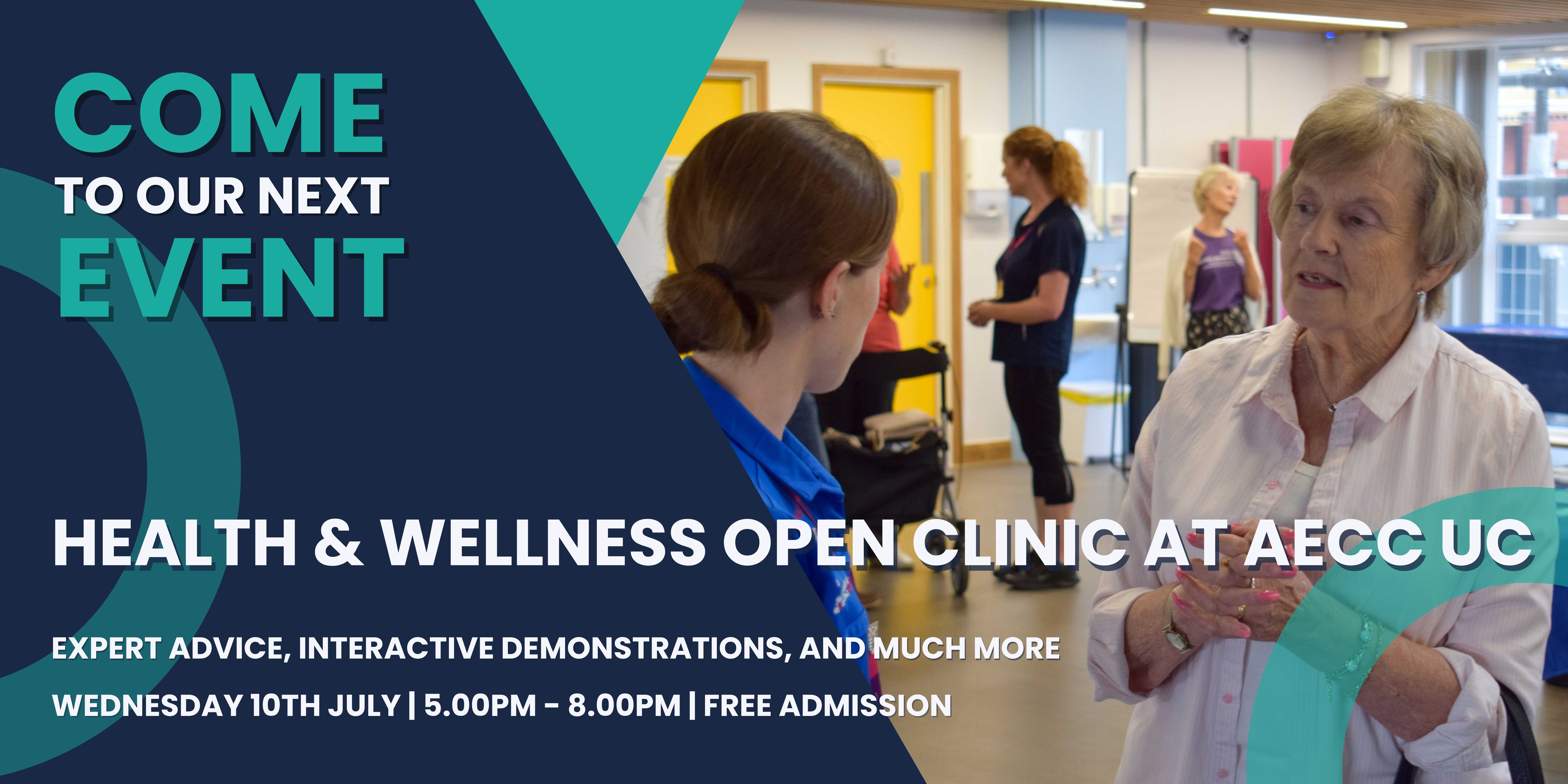Overview
This Level 7 apprenticeship in Dietetics offers a dynamic and rewarding pathway for individuals seeking to embark on a fulfilling career in nutrition and dietetics. Through a combination of practical experience, academic study, and mentorship, you will develop the knowledge skills and values needed to excel in the field of dietetics.
The apprenticeship route was developed in association with a range of stakeholders including employers and service-users. Designed to align to the requirements of the apprenticeship standard for dietitians from the Institute of Apprenticeships and Technical Education (IfATE), the standards of proficiency of the regulator of the profession, the Health and Care Professions Council (HCPC) and the curriculum framework of the professional body, The British Dietetic Association (BDA).
Course Details
What will this course entail
This degree apprenticeship programme combines academic learning with hands-on practice-based learning in clinical, community and food service settings, allowing you to develop a comprehensive understanding of the diverse roles and responsibilities of a registered dietitian.
Under the guidance of mentors and educators you will have the opportunity to apply theoretical concepts in practice with service users from various backgrounds, and to collaborate with interdisciplinary healthcare teams to deliver excellent service-user centred care.
Who is this course for?
Learners must be employed in a relevant role within a dietetic service (which may be across primary care, secondary care or the voluntary sector), at a minimum of 30 hours per week.
Designed to support those wishing to work in healthcare settings under the supervision of experienced dietitians whilst concurrently studying to become a dietitian.
Dietetics is a complex discipline which plays a crucial role in improving public health outcomes, managing disease and enhancing overall quality of life. As a dietetic apprentice you will explore the relationship between food, nutrition and health and learn how to translate this knowledge into evidence-based interventions to support individuals, communities, and populations in achieving their nutritional and health goals.
How is this course structured?
The two-year apprenticeship is composed of 8 core units of study, delivered across three trimesters each year:
Year 1
- DDA7001 Professional Skills for Dietitians 1
- DDA7002 Food and Nutrition, Concepts and Principles
- DDA7003 Nutrition, Health and Disease
- DDA7004 Behaviour Change and Health Promotion
- DDA7005 Professional Skills for Dietitians 2
Year 2
- DDA7006 Clinical Nutrition
- DDA7007 Research in Dietetic Practice
- DDA7008 Dietetics in Practice.
For each unit you will have a number of off-the-job learning hours, this refers to the indicative protected learning time designed and planned for a typical apprentice to achieve the level of competence required to successfully achieve this apprenticeship. Off-the-job learning will include: learner contact time (on campus face-to-face, live online learning), tutor-guided learning, workplace planned learning hours, and independent study including assessment preparation.
Within the units, you will undertake over 1000 hours of practice-based learning which allow you to consolidate your academic learning and develop the knowledge, skills and behaviours required to become a reflective autonomous practitioner.
Please note: MSc Dietetics (Integrated Degree Apprenticeship) is currently subject to approval.
Unit Breakdown
Professional Skills for Dietitians 1 
Professional Skills for Dietitians 1
(Core Unit)
The unit will allow you to plan and commence your learning journey. It will foster and develop the skills required of an independent learner and reflective practitioner, equipping you with the cognitive and practical abilities to engage effectively with your learning, evaluate your current knowledge and skills and identify your learning needs for your development to become a dietitian.
You will critically review the legal, ethical and professional accountability considerations of expanding your scope of practice and working within the professional boundaries of a dietitian. You will practice these professional skills in both a simulated and clinical work-based environment.
Food and Nutrition, Concepts and Principles 
Food and Nutrition, Concepts and Principles
(Core Unit)
This unit will equip you with a critical understanding of the fundamental aspects of human nutrition.
You will review the role and sources of energy and all nutrients, considering the effects and signs and symptoms of deficiency and excess.
The determination and principles of nutritional requirements and the uses and limitations of the dietary standards and recommendations for energy and nutrient intakes through the lifecycle will be explored.
You will learn how to assess the nutritional status of individuals and about the methods we can use when considering large population groups.
Important topics including food safety, hygiene and legislation on food labelling in relation to nutrient content and health claims will be covered.
Nutrition, Health and Disease 
Nutrition, Health and Disease
(Core Unit)
This unit will examine the body systems in health and disease, and explore the physiological, biochemical, immunological, genetics and environmental basis of disease and the role of nutrition throughout the lifecycle.
You will evaluate the evidence for a relationship between diet and nutrition and diseases and consider the potential for improvement in health of individuals and populations by a change in dietary habits.
Behaviour Change and Health Promotion 
Behaviour Change and Health Promotion
(Core Unit)
In this unit you will examine the factors that affect people’s food choice and consider the complexities and the psychology of changing behaviour, specifically dietary behaviour. You will explore various theoretical models of behaviour change and how they are used in dietetics.
You will consider the role of the dietitian in the public health work force and review contemporary public health nutrition issues.
Through applied practice-based learning you will further explore the service user – professional relationship and will develop, deliver and evaluate a health education campaign, communicating and disseminating evidence-based nutrition health education using a range of media.
Professional Skills for Dietitians 2: A Multidisciplinary Approach 
Professional Skills for Dietitians 2: A Multidisciplinary Approach
(Core Unit)
The unit will further develop your skills as an autonomous independent learner and reflective practitioner, equipping you with the cognitive and practical abilities to appreciate the role of the dietitian within the broader workforce, including in food development and production, retail, catering, the media etc.
You will also explore the principles and opportunities to develop your own leadership skills and the importance of leadership within the profession. During a period of practice-based learning you will have an opportunity to shadow a dietitian in a leadership role.
You will study the principles of catering management and undertake work-based learning activity in the catering environment including involvement in menu planning, provision of specialised diets and service monitoring and evaluation.
In addition to spending time in a dietetic and catering service, you will also gain experience of the roles of other professionals within the health care workforce to foster an in-depth appreciation of the role of the multi-disciplinary team in the integrated care of service users.
Clinical Nutrition 
Clinical Nutrition
(Core Unit)
This unit will explore and apply the therapeutic role of diet in the management of disease. You will evaluate the options for the nutritional management of clinical conditions and utilise the British Dietetic Association’s Model and Process for Nutrition and Dietetic Practice and clinical reasoning skills to support evidence-based decision making.
You will be introduced to the role of the dietitian in mental health, learning differences, disordered eating etc and will appreciate the nutritional considerations in these populations. You will review the options for nutritional support of the acutely and chronically ill service user. You will discuss and debate the legal and ethical considerations which arise in the field of clinical nutrition including end of life care.
Research In Dietetic Practice 
Research In Dietetic Practice
(Core Unit)
You will almost certainly have undertaken some research as part of your undergraduate programme, and we will revisit and further develop your knowledge of research methodologies and data analysis.
However, this unit specifically explores the philosophy and approach to research and service improvement in an applied setting. In collaboration with your academic team and practice-based learning tutor and your employer you will undertake either a research project or a service improvement project to create knowledge that will inform clinical practice and service outcomes in dietetics.
Dietetics in Practice 
Dietetics in Practice
(Core Unit)
In this unit you will undertake practice-based learning, working with a range of service users, building on your previous service experience. You will have the opportunity to apply your theoretical knowledge and skills that have been developed while studying other units on this course, applying them in practical environments and utilising your transferable skills and the Model and Process for Nutrition and Dietetic Practice to manage increasingly complex cases and caseloads. Work may include care of the elderly, general medicine, neurology, endocrinology, orthopaedic, cardiac, stroke, respiratory medicine, gastroenterology, surgical, oncology, palliative care or paediatric patients in community or inpatient settings.
As the unit progresses you will take greater responsibility as you move towards becoming an autonomous practitioner, within the scope of practice of a dietitian. You will work effectively as part of the dietetic and wider multidisciplinary team, appreciating the limitations of your practice, accepting referrals, delegating workload as necessary and also referring service users to other services as appropriate. You will become a confident practitioner able to challenge the practice of others where appropriate.
Entry Requirements
What qualifications do I need? 
What qualifications do I need?
You will need a first degree, or equivalent, in a relevant health- related subject. Apprentices who do not have a health-related undergraduate degree must demonstrate evidence of knowledge of biological sciences, behavioural sciences or other health professional education.
You will need to have achieved level 2 in English and Maths prior to being recommended for the end point assessment.
As this is an Institute for Apprenticeships and Technical Education integrated degree, you must meet the eligibility required under ESFA funding rules: https://assets.publishing.service.gov.uk/media/653b726de6c9680014aa9c05/Apprenticeship_funding_rules_2324_Version_2.pdf
and be employed in a relevant role with a minimum 30 hours per week, with full employer support, or be working towards a future role requiring this degree course.
If English is not your first language, you must achieve an IELTS score of 7.0, with no less than 6.5 in any element. Test must have been undertaken within two years of application.
Evidence of prior learning 
Evidence of prior learning
At interview you undertake a skills scan, where this identifies relevant prior academic learning and experience, relevant to the course learning outcomes, consideration will be given to recognition of this prior learning. Prior learning will be reviewed to ensure it meets the learning needs of the course and meets the learning outcomes of any units where exemption is requested.
Is there anything else that’s required? 
Is there anything else that’s required?
You will be required to complete an occupational health questionnaire, to assess your readiness to undertake the course (e.g. physical and mental health, inoculation status etc).
You will also require a Disclosure and Barring Service (DBS) check. It is anticipated that these requirements will align to the requirements of your employment.
If you’re not sure about anything listed here, talk to our Apprenticeship team by emailing apprenticeships@aecc.ac.uk complete the form below or call us on 01202 436200 and we’ll be happy to answer any question you have.
For more information about our admissions policies and procedures, including our Admissions Complaints and Appeals Policy, see latest policies.
Register your interest 
Register your interest
To register your interest now or ask any questions about the course, please complete the form at the bottom of the page.
International Students 
International Students
International students are only eligible for this course if you are eligible to work in the UK, are employed in an appropriate role and have the necessary visas.
Still have questions about applying?
Course Fees
This Apprenticeship has been allocated to the £12,000 Apprenticeship funding band.
Register your Interest
Register your Interest / Enquiry 

Why choose AECC University College
There are many benefits to studying at AECC University College, from our expertise and history in teaching health sciences, to our state-of-the-art facilities, on-site clinical training, and of course our location on the beautiful Bournemouth coast.
Latest News
Discover and read all the latest news, press releases and happenings here at AECC University College.

AECC University College has changed its name to Health Sciences University (HSU). This represents a significant milestone in our institutional journey as we proudly carry this new prestigious title.

Martin Kumm tells the story of his journey from graduation to achieving his dream job as a chiropractor for the EF Education Easy-Post professional cycling team.

Professional ballet dancer Pippa Myres had to re-think her career and is now training to become a podiatrist on the MSc Podiatry course.

On Wednesday 10th July, AECC UC's specialist Multidisciplinary Team (MDT) will be running a free Health and Wellness Open Clinic.

AECC University College is delighted to be a signatory of the Declaration on Research Assessment (DORA).

Callum Moss is a First Year student on the MSc Physiotherapy (pre-registration) course at AECC University College. We recently caught up with him to hear more about his decision to study to become a physiotherapist and why AECC UC is an appealing specialist university.



